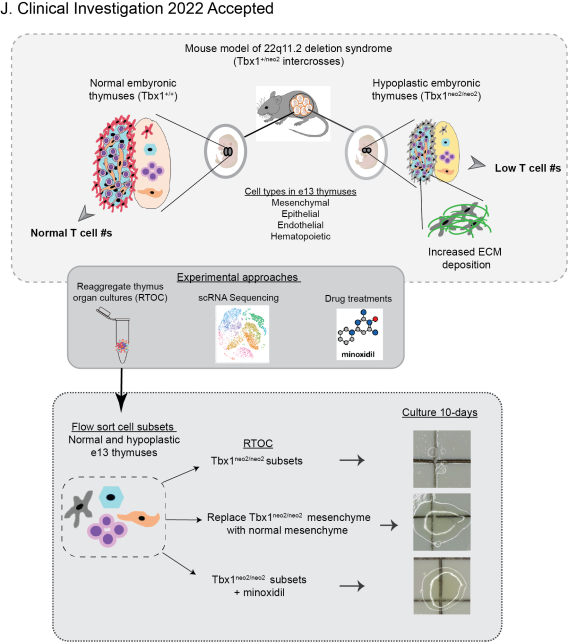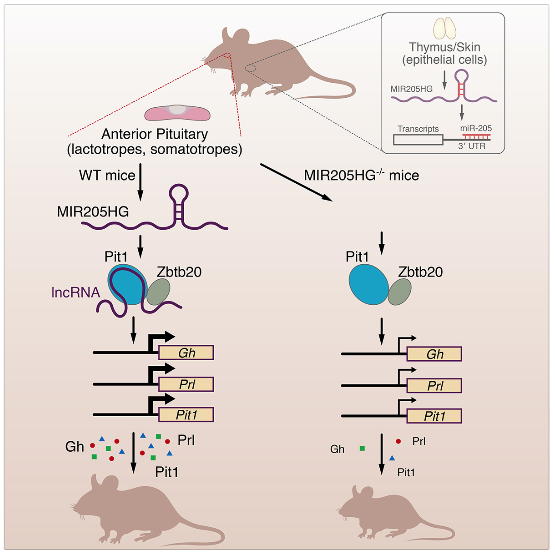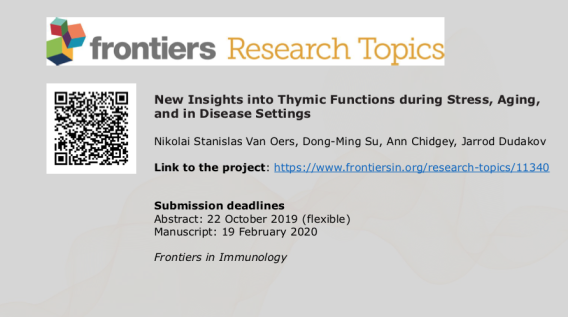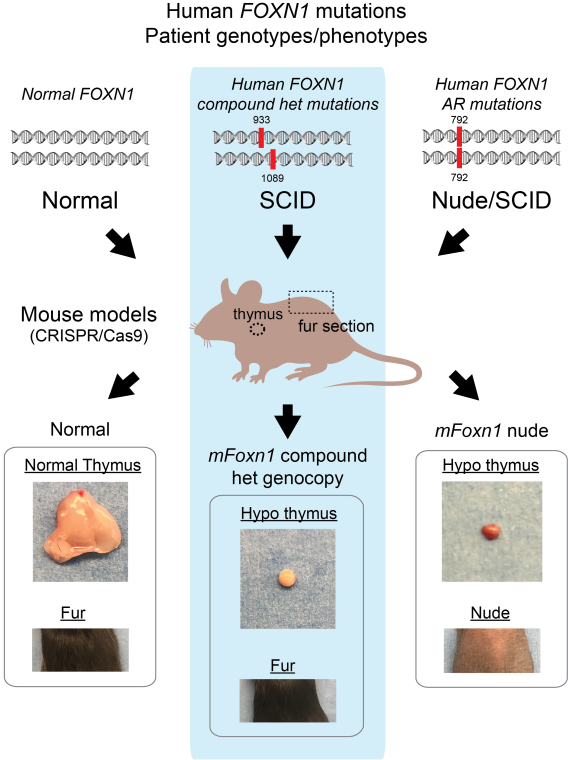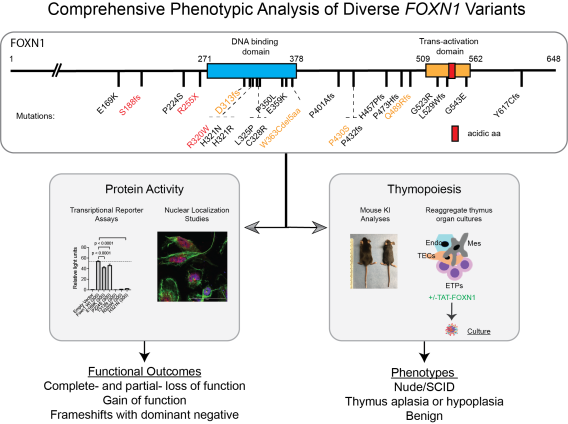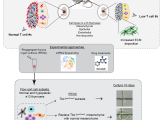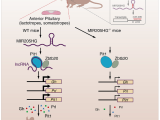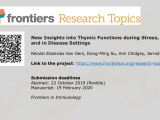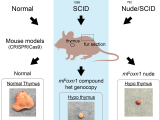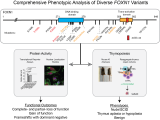In-Born Errors of Immunity-
Discovering and elucidating genetic variants
Patients with in-born errors of immunity do not respond effectively to viral, bacterial, and fungal infections, leaving them prone to life-threatening conditions. We perform gene sequencing on patients to identify mutations potentially causal to immune system failures. Candidate genes are studied, often with mouse models developed to genocopy the human mutation. We are currently exploring the underlying molecular effects of 22q11.2 deletion syndrome, the impact of diverse mutations on the FOXN1 transcription factor, and characterizing the impact of novel mutations identified in ITPR3 and PRIM1. Our goal is to help improve the lives of those impacted by these diverse in-born errors of immunity.
22q11.2 Deletion Syndrome-
Developmental and regenerative approaches
22q11.2 deletion syndrome affects ~1/2150 individuals, leading to congenital malformations of the thymus, heart, and parathyroids. We are using mouse models of 22q11.2 deletion syndrome to identify the cell populations affected during the formation and function of the thymus. This is revealing novel contributions of mesenchymal and endothelial cells in the growth and expansion of the thymus. Regenerative technologies are being developed along with drug screens to enable tissue expansion in utero to improve immune functions. Our studies are revealing key steps needed to assemble thymus organoids.
Immune system development in infants/children-
Profiling antibody responses over time
The immune system in a newborn-child is subjected to many diverse infections, dietary changes, and vaccination. We are exploring the changes in the antibody specificities in this group against infectious agents, self-proteins and vaccines. This is revealing diverse responses among this cohort, a difference that is anticipated to extend later in life.
